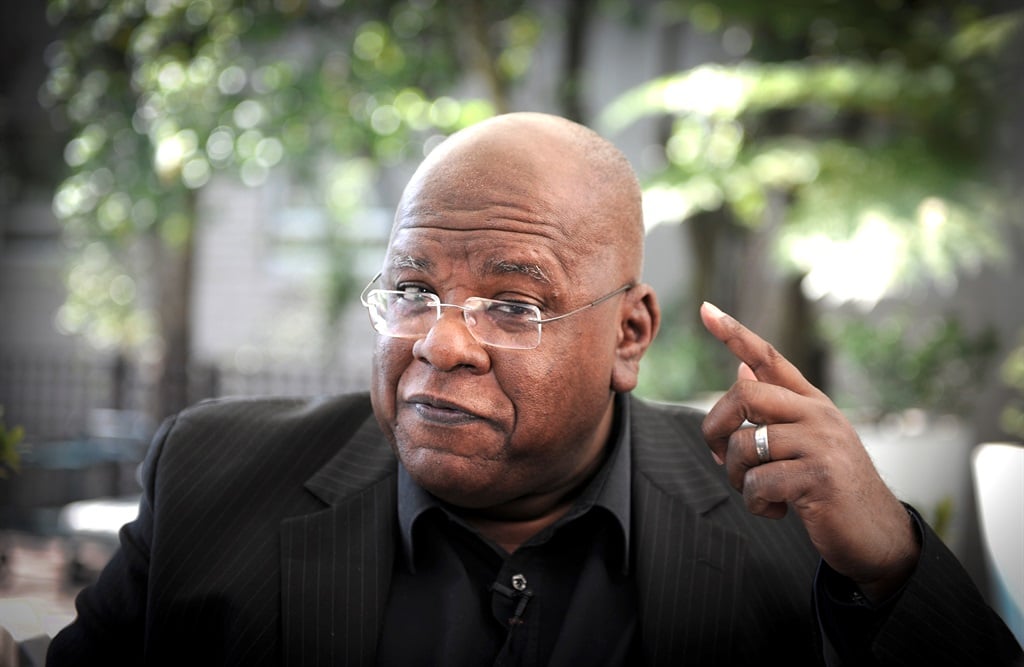
Professor Jonathan Jansen has profound concern for the future of the South African university.
Jansen, who was vice-chancellor of the University of the Free State during the student protests of 2015 and 2016 told a forum hosted at the Gordon Institute of Business Science that “South African universities have taken hundreds of years to build up, but can be broken down in three months. That scares me.”
Recently returned from 10 months as a fellow at the Center for Advanced Studies at Stanford University in the United States, Jansen said he is now more concerned than before, and is critical of the student movement: “In the euphoria or hubris of the moment of the protests, they didn’t realise they were breaking down the African university.”
Drawing on his significant experience gained working with and witnessing the deterioration of various southern and east African universities, Jansen said the issues of chronic instability and lack of public funding also drive the politics of South African institutions.
“We have a very dangerous tendency to think of ourselves as exceptional. But if we don’t do anything, I guarantee you they will go the same route as sister universities in the region.”
Fees Must Fall protests
The student campus protests, which largely fell under the banner of the Fees Must Fall movement, were a proxy for fighting wider societal ills and the failure of the promise of 1994, Jansen explained.
“Some were simply acting on orders from outside, I know that for a fact. But it was important to keep perspective and pay attention to the issues, which were real.”
Underlying the unrest were two central issues – the technical problem of finances and funding, and the political concerns.
Any new funding regime proposals have to have free education for the poor Jansen argued.
“We must make it easier for poor, talented students to access university,” he said.
The poor must be fully funded, without a loan, or else they carry the burden. Middle income and wealthy students must pay, or we simply perpetuate inequality, he said.
The solution to the political problem was “to have a government that is credible in its own right, and we don’t have that. Everybody is on the take and our government has no moral authority. We can’t solve the political problem with any fancy financial models.”
The student movement, which started in March 2015, was “nonracial, largely nonviolent and showed solidarity across campuses. It was the type of disruption that is needed in a democracy from time to time, what gives us our very lifeblood, our very hope.”
But what happened from October 2015 into 2016 “scared the hell out of me” Jansen said.
“I’ve seen this movie before, and it doesn’t end well.”
While he described himself as sympathetic to the student movement, Jansen said it would be irresponsible to side with the students, regardless of what they were doing.
“When the students threatened violence in a democracy, nobody questioned them. We are a constitutional democracy, we are not living under Apartheid,” he said.
The violence has simply become entertainment, Jansen continued. While student protests at international institutions are disruptive, they are never violent, he argued. “They don’t burn down their law library or disrupt others’ right to learning. In South Africa we have a tendency to completely ignore what is happening around us as a way of coping and we don’t realise the extent of the violence. We must recover our humanity.”
Crisis leadership
Jansen’s recently released book, As By Fire, interviews 11 of the vice-chancellors most affected by the protests.
Those in leadership positions at institutions of higher learning at the time required an entirely new skill set, including crisis leadership, and the ability to constantly engage with continually shifting stakeholders and student leadership groups.
“The truth is that you are scared. Your family is scared, and you are scared of what is going to happen to your students. Half of our vice-chancellors are traumatised, and they don’t know it. The violence scares me. But the racism scares me more. We are making the best people in the country expendable.”
Jansen said the South African education system was in need of an overhaul and academia faced a dilemma with a lack of pipeline of sufficiently prepared students coming through primary and high school to university.
“If it were up to me, I wouldn’t put any more money into higher education, but rather into preschool education to get the foundation right,” he said. This would widen the base and allow for more people to succeed in the economy.
“What makes me lose sleep at night is our disrespect for the potential of our young people. The students I saw at Stanford were no different from our students here at home. The only difference is that they have more opportunities.”
However, Jansen retains a sense of hope for the country. “I know for a fact that the good people in this country outstrip the bad and that gives me incredible hope. I’ve just seen too much good to be cynical.”




 Publications
Publications
 Partners
Partners








